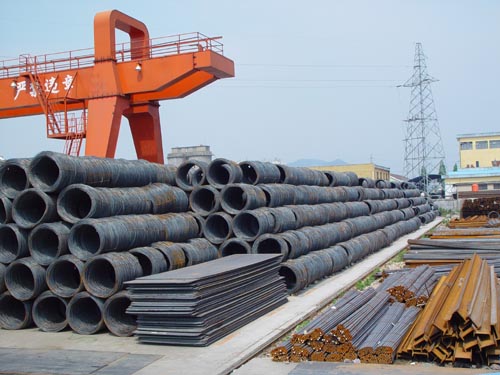Chinese firms accused of tariff evasion

The accusation by a US industry group that Chinese manufacturers of steel wire products evade anti-dumping duties via third countries is connected to gloomy economic prospects in the US, and even if confirmed as true, however, should be taken on a case-by-case basis, analysts said Tuesday.
The US Coalition for Enforcement of Antidumping and Countervailing Duty Orders said it had gathered "compelling evidence of how certain manufacturers (in China) are evading duties," the AFP reported Tuesday.
Citing "transshipment" or "inconsequential modification" in third-party economies, the coalition, comprising six companies manufacturing steel wire products, claimed the resulting duty evasion costs the US "at least $84 million annually" and "threatens jobs."
Exporting semi-manufactured goods to a third economy for further production is a normal business code in international trade, Yao Xinchao, a professor of international trade at the University of International Business and Economics (UIBE), said Tuesday, while pointing out that differences in the case may involve various interpretations over rules of origin, which usually stipulate the proportion of added-value produced in the third economy.
The duty-evasion charge comes at a time when the US is beefing up its protection for domestic steel industries with high-profile anti-dumping and countervailing duties amid its gloomy business prospects in order to curb any possible competition.
The austere US economy, still plagued with unemployment as high as around 10 percent, casts a shadow on the industry, pushing lobbyist groups to pressure Washington to reduce possible impact from competition, Yao added, while pointing out that the increasingly close US-China business development makes more frictions possible, a normal phenomenon in international trade.
Therefore, trade frictions in the steel industry may turn more serious than in 2009, Xu Xiangchun, information director of mysteel.com, told the 21st Century Business Herald in January.
However, the tariff evasion via third economies, despite being a familiar approach for businesses in order to break tariff or non-tariff barriers, is not a long-term measure, since the final importer can easily fight back by seeking policy adjustments to offset the trade distortion brought by evasions and to achieve protectionist purposes, said Lu Jinyong, professor at the China Research Center for Foreign Direct Investment, UIBE.
In contrast, direct investment, another way to break barriers, is welcome for the host country, according to Lu.
The so-called tariff evasion of Chinese steel wire manufacturers, even if confirmed, falls into the category of individual cases, and is not encouraged by the Chinese government, Lu noted.
 0
0 






